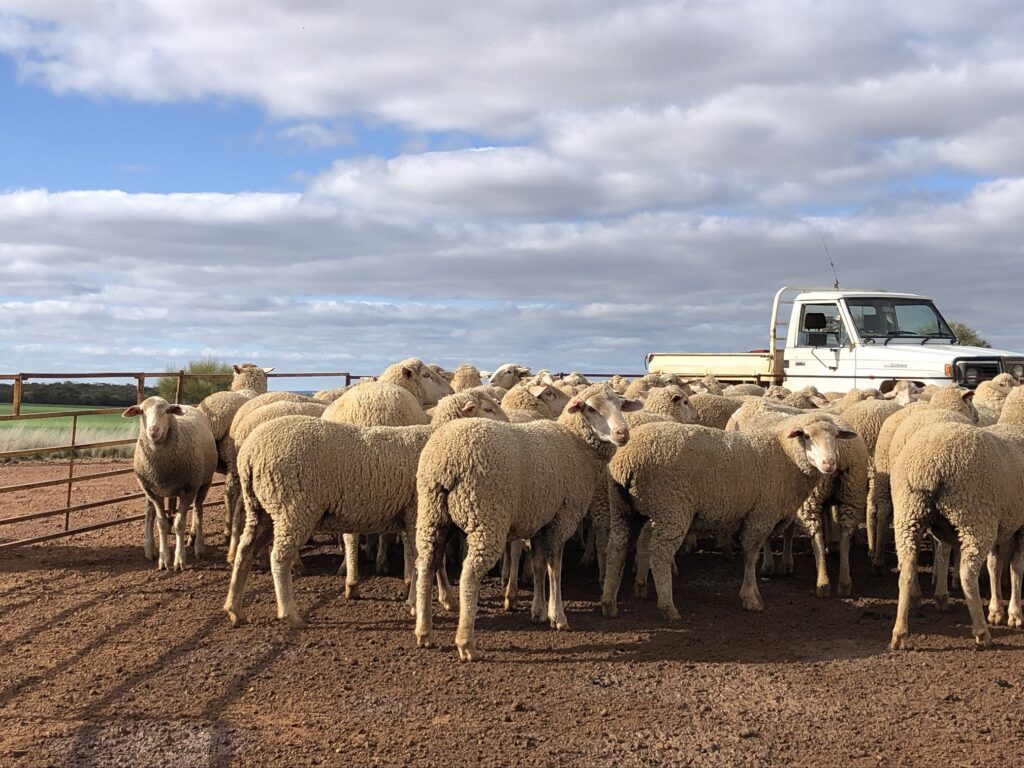$10 off on your first order.
We’ll send you the $10 OFF coupon as soon as you submit your email. Join now for instant savings!

Weaning is a critical time of the year, with weaner sheep given preventative health treatments and moved onto clean quality pasture paddocks to provide the best possible start to adult life. Even marginal increases in weaning weight and condition result in significantly better meat and wool production outcomes.
Weaning should take place at 12 weeks, earlier in a poor season. At 12 weeks milk only makes up 10% of lamb food requirements, so weaning lambs onto clean paddocks offering good pasture (ideally short green feed incorporating legumes or good quality stubble with minimal grass seeds) helps weaners gain condition. Ewes also of course benefit from time to rebound after their lambs have been weaned off and to enjoy some quality pasture before it declines in value over summer.
Moora and surrounding areas are located in WA’s south-west medium to high rainfall zone, which stretches west to the coast, east to Cadoux, north to Geraldton and south to Albany.
For this zone, Wormboss recommends that short acting combination drenches be given to lambs at weaning and also to hoggets in spring/early summer, and that adult sheep not be drenched at this point in time. This is because younger growing sheep without fully developed immunity are more vulnerable to worms. In contrast, there is little risk to adult sheep over summer because most adult sheep demonstrate minimal worm burdens during this season and dry summer pastures provide unfavourable conditions for worms.
Wormboss also states that the combination drench group used should be changed each time a mob is drenched and each time a paddock is drenched to help fight worm resistance.
FarmCo Moora stocks a range of combination short acting drenches like Startect and Zolvix, as well as triple short acting drenches like Trifecta, Triguard and Tridectin to ensure that you can rotate your drenches and give your flock the best possible chance to fight off worms.
Wormboss recommends a faecal egg count test be carried out six weeks after weaners have had their weaning drench. The same applies to hoggets, with a faecal egg count test carried out six weeks after spring or summer drenches to assess whether the drench has been fully effective (the drench has reduced faecal egg counts by at least 98%).
FarmCo Moora is one of only five businesses in WA offering Parasight faecal worm egg count testing. This provides an Eggs per Gram (EPG) count and an image of the eggs, and these results are emailed to farmers usually within a day. This service costs only $25, with farmers simply bringing in 10 samples from the mob in a zip lock bag or egg carton.
If you want to get a specific and up to date recommendation for your mob depending on animal age and whether any symptoms of worms are present, you can also check out the Wormboss Decision Guide which is an excellent tool that gives you particular advice for the time of the year and your mob.
Information taken from WormBoss, the MLA website and from the following DPIRD WA website articles: Sheep Weaning Best Practice and Sheep worms – Sustainable Summer-Autumn Worm Control.
Join now for instant savings!
$10 off on your first order. Join now for instant savings!
We’ll send you the $10 OFF coupon as soon as you submit your email. Join now for instant savings!